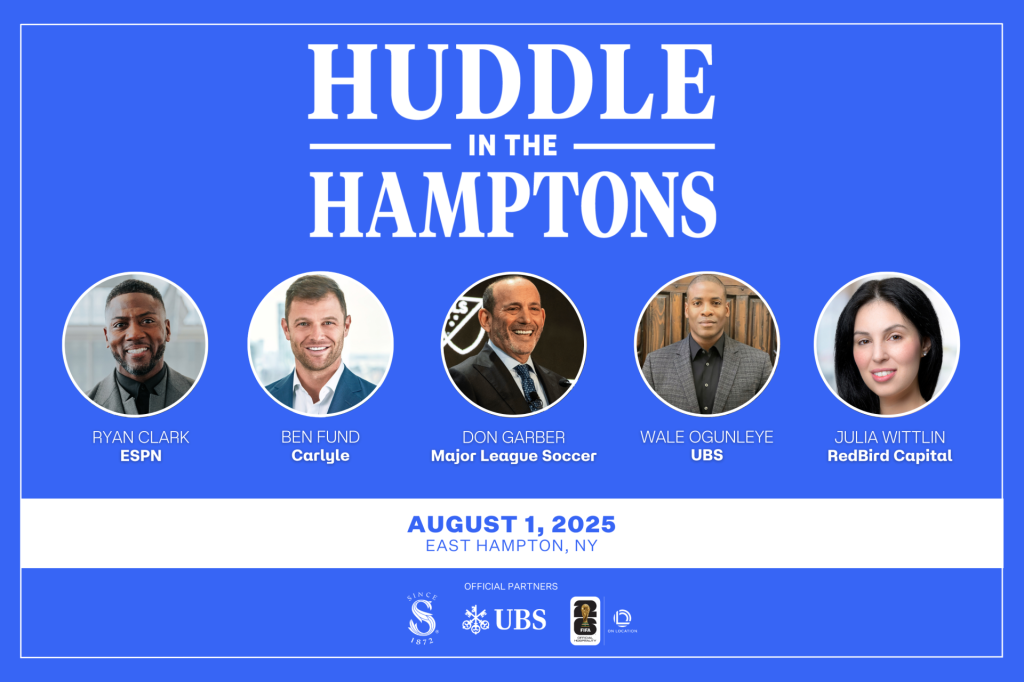Morning Edition |
July 24, 2025 |
|
|
MLS owners continue to weigh a seismic shift to a fall-to-spring schedule that would align the league with global soccer, but the board of governors stopped short of a vote in Austin as commissioner Don Garber stressed the need to “get it right.”
—Eric Fisher, David Rumsey, and Colin Salao
|
|
|
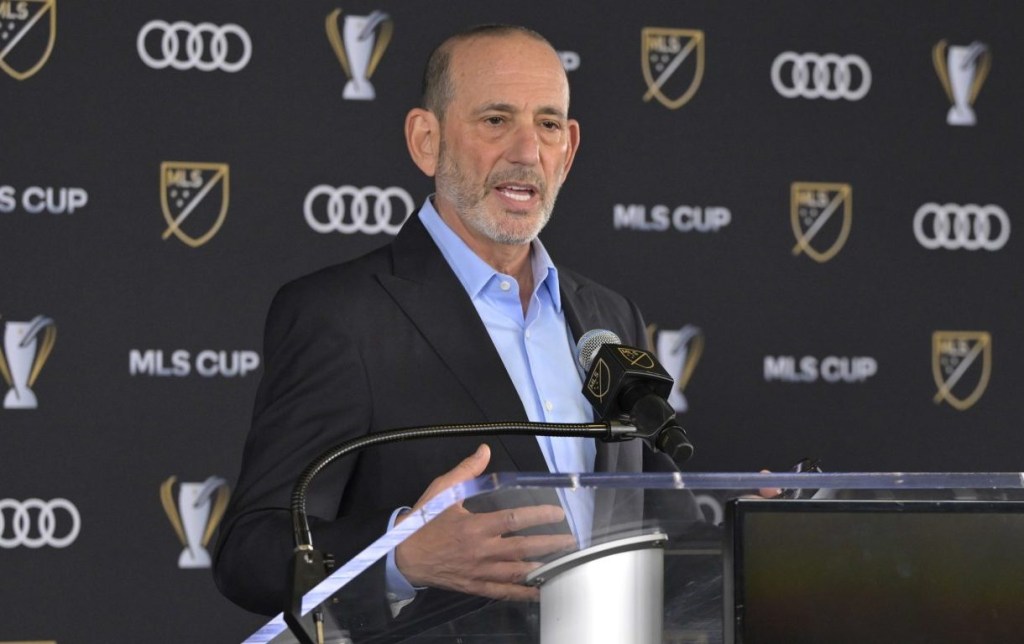
|
Jayne Kamin-Oncea-Imagn Images
|
Historic scheduling changes are almost certainly coming to Major League Soccer, but not yet.
The league’s board of governors, meeting Wednesday in Austin, did not formally act on a proposed shift to a fall-to-spring schedule, which would align MLS with much of the rest of global soccer. The matter was a key part of the session, held in conjunction with the league’s All-Star events at Q2 Stadium, but commissioner Don Garber said work related to the schedule move is not yet complete.
“Making this change is seismic,” Garber said late Wednesday after the meeting. “It’s not something we should do lightly. If we do make the change, we’re not going to go back. … I would rather take our time and get it right.”
The lack of a vote on the schedule change follows a prior board of governors meeting in April, when club owners agreed to expand exploration of the move, but went no further.
Any move, should it happen, will not take effect until at least 2027, still giving MLS some additional time to act.
“We think that alignment [to the international standard] makes sense,” he said.
Moving to the fall-to-spring timing would match MLS with most of global soccer, including the Big Five European leagues of the U.K.’s Premier League, Spain’s LaLiga, Germany’s Bundesliga, Italy’s Serie A, and France’s Ligue 1. MLS would also be able to participate more fully in the player transfer window, and it could help boost the league’s international standing commercially and competitively, one that has the league still trailing many of its European counterparts.
A MLS shift, though, after playing for three decades on a winter-to-fall format, carries a wide range of complex implications spanning media, labor, facilities, and sponsorship, among other areas. Unlike European leagues that deal with a more uniform weather pattern, the vast geographic expanse of MLS across much of North America also brings many more climate-related issues into play—both with extreme cold and heat.
“It’s getting hotter, and that’s clearly an issue, playing through the depth and the core of the warmest months in many of our markets,” Garber said in response to a Front Office Sports question. “So it just adds to the challenges and complexity that MLS has to deal with. As many people ask questions about how we’re going to deal with this one issue, that’s one of a thousand that we’re dealing with. We have to make the decision that’s going to set us up best for the future.”
Apple Disclosure
Garber, meanwhile, said viewership of the league’s matches on MLS Season Pass has grown about 50% this season to an average of 120,000 per match, with improved access and distribution of the Apple TV games credited for a key part of that increase. That figure represented a rare moment of transparency for a media rights deal that thus far has been shrouded in secrecy.
“We and Apple believe we need to share more information. It’s the beginning, not the end,” Garber said.
|
|
|
|
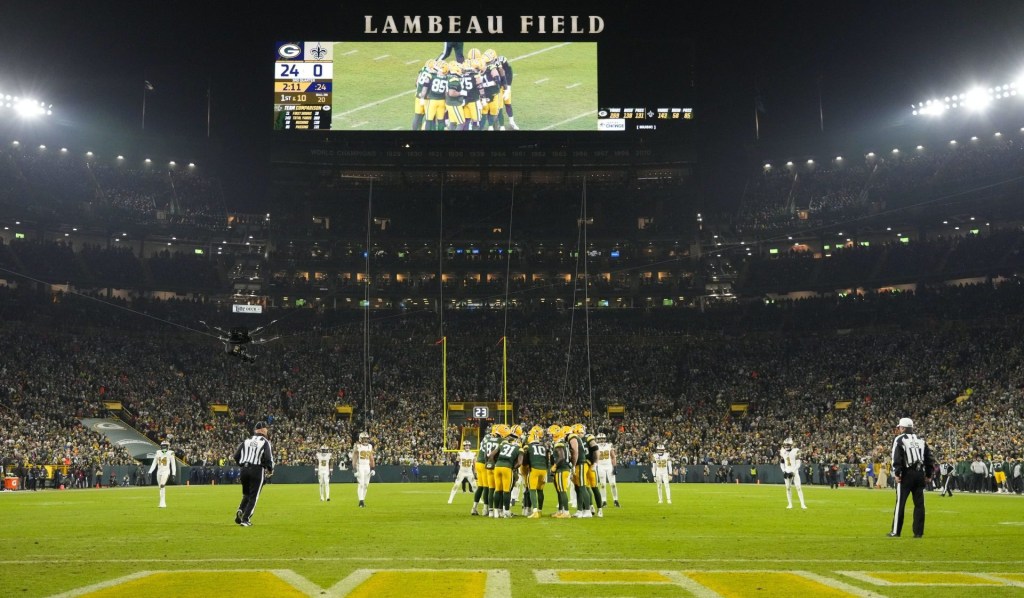
|
Jeff Hanisch-Imagn Images
|
The already-great financial state of the Packers, and the NFL, just keeps getting better.
The team said late Wednesday that it generated a franchise record $719.1 million in revenue for its fiscal year ended March 31, 2025, up 10% from last year. Operating profit rose 39.3% to $83.7 million.
Some of the spike owed to the Packers having a ninth home game during 2024, as last season was a year in which all National Football Conference teams had an additional home game in the annual rotation between the conferences. More broadly, though, the NFL remains on a growth wave as key revenue drivers such as domestic media revenues, sponsorship, and the league’s international presence all saw strong spikes last year.
To that end, the league generated about $13.8 billion in national revenue, extrapolating from the Packers’ $432.6 million share. That’s up 7.5% from the $12.87 billion in national revenue for the league in the prior year. The individual share of national revenue was easily more than enough to cover the Packers’ 2024 salary cap allocations of $251.6 million for players—before any locally generated revenue is considered.
“It was a successful year for the organization,” said Packers president and CEO Mark Murphy, who projected additional annual national revenue increases of about 7% in future years. “The NFL’s popularity and success continues to set the stage for our club to do well, which puts us in a position to continue to invest in the team and the stadium.”
As the league’s only publicly owned team, the Packers provide a unique window into the financial stage of the NFL, which continues to assert itself as the most dominant sports league on the planet.
The release of the Packers’ annual financial report also arrived two days before a scheduled shareholders meeting for the team on Friday. There, Murphy will formally step down after reaching the team’s mandatory retirement age of 70, and will be succeeded by Ed Policy, currently the team’s COO and general counsel.
One of the bigger changes likely to occur under Policy is a heightened global presence for the Packers and the team’s brand. Green Bay was among the last in the NFL to join the league’s Global Markets Program, gaining rights in late March to Germany, Ireland, and the U.K.
Just after the conclusion of the fiscal year, the Packers and Green Bay hosted the 2025 NFL Draft, drawing 600,000 people to the league’s smallest market.
|
|
|
|
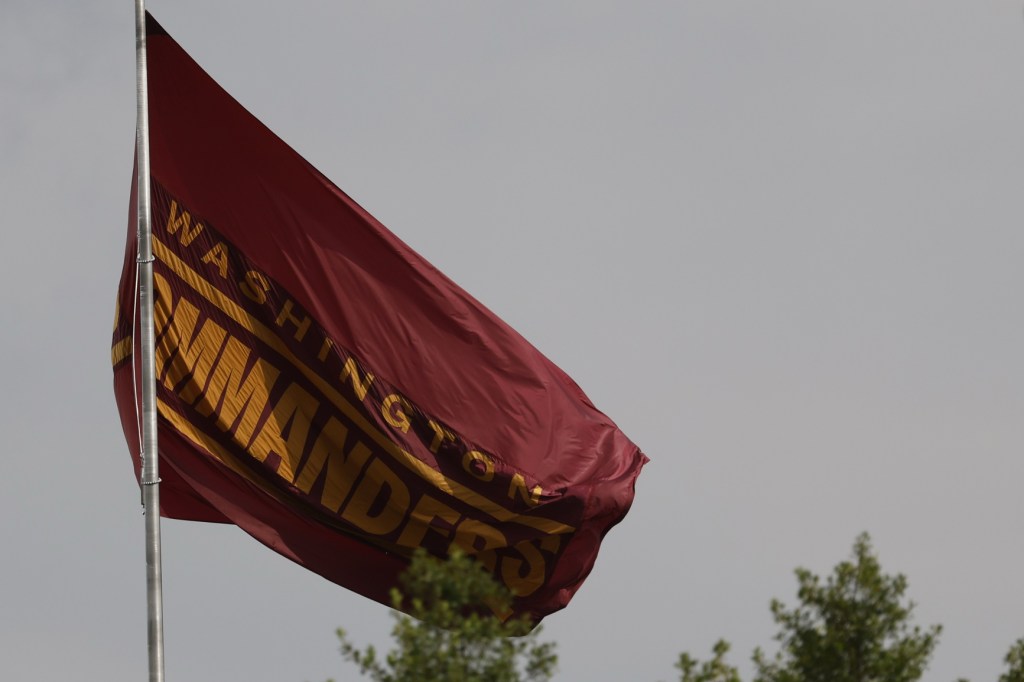
District of Columbia leaders, urgently trying to complete a $3.8 billion stadium deal with the Commanders, are not spoiling for a fight with U.S. President Donald Trump, and instead want to finish the pact as soon as possible.
Trump threw a big new wrinkle earlier this week into the long-discussed pact at RFK Stadium, threatening to kill the deal should the Commanders not revert to their prior name. While the president’s powers to do that remain limited, what’s become clear is that the local officials are not eager to test that, if at all possible.
D.C. Mayor Muriel Bowser said on Monday that her support for the stadium pact is not tied strictly to the team’s nickname. That’s a significant shift from 2020 when she said that the team’s return to D.C., where it played from 1937 to 1996, was in fact dependent on changing the name, which it ultimately did in early 2022 to Commanders.
Phil Mendelson, D.C. Council chair, has made a similar pivot in recent days. On Monday, he said the team’s nickname was not at all a salient issue in the stadium debate, and that “zero District residents” had complained to him about the shift to Commanders. The next day, though, he, too, signaled that the team reverting to the prior name was not necessarily a problem.
“My guess is no,” Mendelson told WJFK-FM, when asked whether changing the name back would poison the stadium agreement. “It wouldn’t change it for me.” The chair, however, did say he believes the entire name issue is a “distraction,” and further asserted that Trump’s powers in the matter are minimal. Additionally, Mendelson said the toxicity of former team owner Dan Snyder was, in fact, a big part of the prior reticence of the D.C. government to reach a stadium deal with the Commanders.
The Commanders, meanwhile, have not commented at all since Trump’s remarks Sunday. Owner Josh Harris, however, has previously been steadfast about not changing again from Commanders.
Path to a Vote
WRC-TV reported Wednesday that the council and Commanders have reached an agreement on amended deal terms, a move that would help pave the way for a council vote before its August recess. Details on the changes, however, have not emerged, and the parties did not comment further.
While the stadium issue continues to play out, Bowser is still trying to build sufficient support among the council for the stadium deal, which initially called for $1.1 billion in public funds and Harris supplying the rest.
Mendelson has scheduled public hearings on the matter for July 29–30, and a council vote could happen as soon as July 31.
While Trump has made clear his desire for a team name change, Rep. James Comer (R., Ky.), chairman of the House Committee on Oversight and Government Reform, has pushed for the stadium deal to get done as soon as possible. Comer was a key part of a prior agreement to transfer control of the RFK Stadium property from federal authorities to the D.C. government.
|
|
|
|
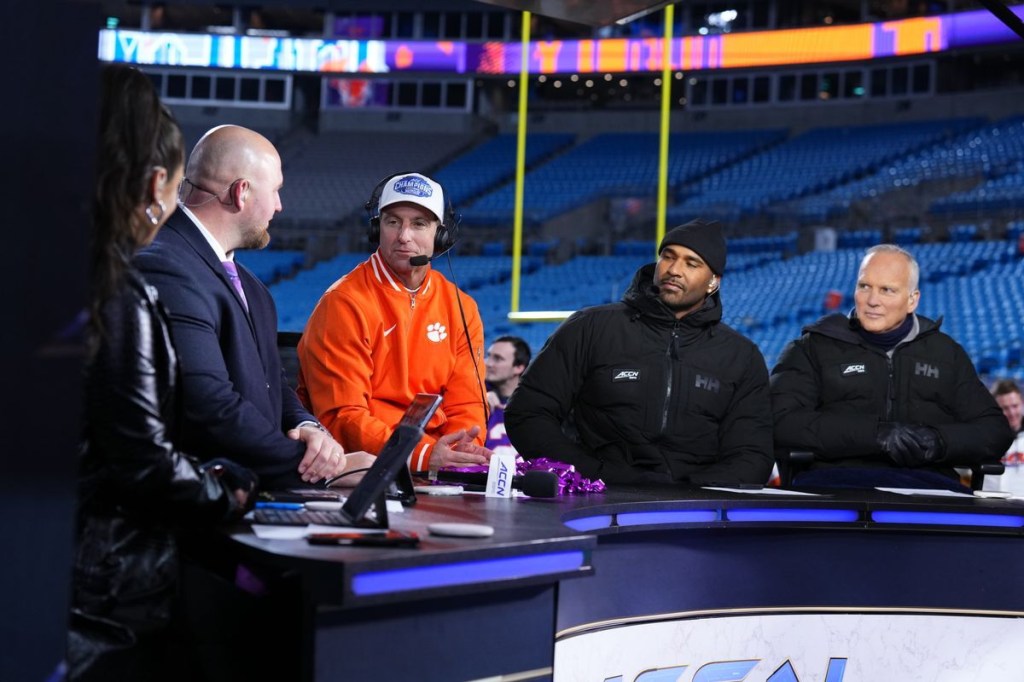
|
Rich Storry - ESPN Images
|
CHARLOTTE — As ESPN’s College GameDay and Fox’s Big Noon Kickoff continue to battle for college football pregame show supremacy, another traveling program is expanding its nationwide footprint.
This season, the ACC Network’s ACC Huddle will broadcast from the campus of the conference’s marquee game of the week (10 a.m. to noon ET), regardless of which channel it airs on. Previously, the pregame show originated from the location of the ACC Network’s Saturday night primetime game, which often is the third- or fourth-best ACC game of the weekend.
So, with the SEC Network’s SEC Nation and Big Ten Network’s B1G Tailgate similarly traveling each week to a campus around their respective conferences, how many pregame shows is too many?
“It’s hard to describe what the pageantry of college football means to people, and I don’t think that there’s ever enough,” ACC Network senior director of programming Jeramy Michiaels told Front Office Sports.
In 2024, College GameDay averaged 2.2 million viewers, the most in the show’s 38-year history. To continue competing with the top dog, Big Noon Kickoff is adding Barstool Sports founder Dave Portnoy to its set this year.
New Kid on the Block
The revamped ACC Huddle will model itself after College GameDay, Michiaels said, but it will avoid broadcasting from the same site when ESPN’s flagship pregame show goes to an ACC campus. ACC Huddle will be at Clemson on Aug. 30, when the Tigers host LSU. That Saturday, College GameDay and Big Noon Kickoff will be in Columbus ahead of Texas–Ohio State.
“It’s great just being in those environments,” ACC Huddle analyst Eddie Royal, a former Virginia Tech and NFL receiver, told FOS. “That’s why everybody loves college football.”
This season, Royal, fellow analyst Eric Mac Lain, and host Taylor Tannebaum will be joined by former Texas A&M coach Jimbo Fisher, who won a national championship at Florida State.
|
|
|
|
- Commanders linebacker Bobby Wagner has joined the ownership of the Seattle Storm. Wagner, who also starred for the Seahawks for 11 seasons, is the first active NFL player to have equity in a WNBA franchise.
- Michael Rodriguez, who has colon cancer, made two free throws in The Basketball Tournament for his first points. Check it out.
- European soccer stars coming to MLS have had a significant increase in salary over the years. Here is how the progression has unfolded.
|
|
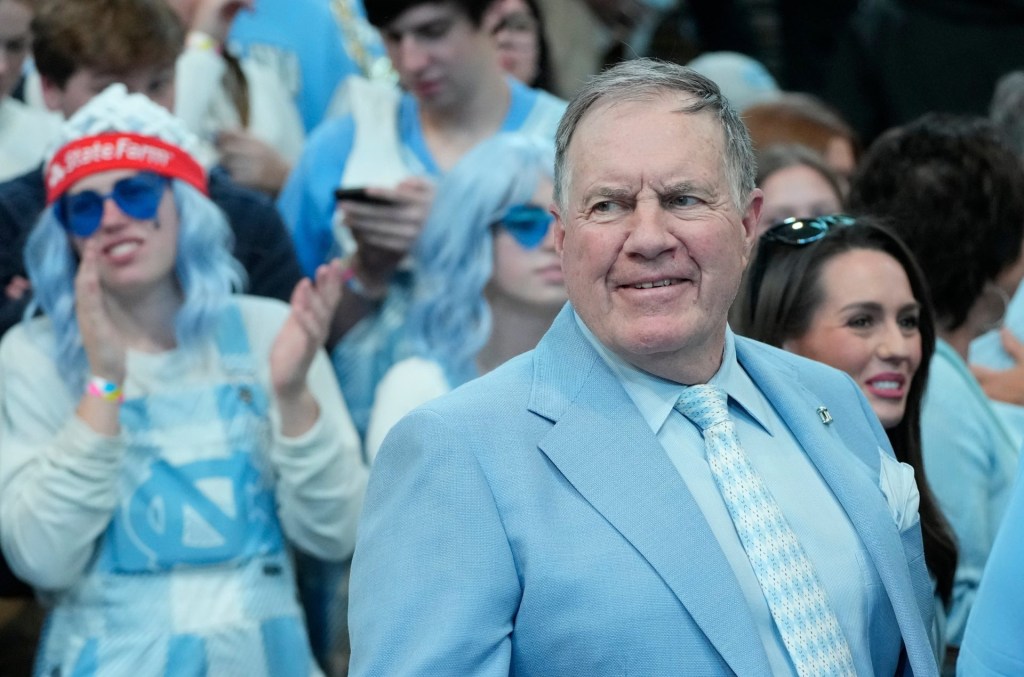 | Consistent drama around Belichick’s first college season has only helped ticket sales. |
 | Sinner did not miss any Grand Slams due to the ban.
|
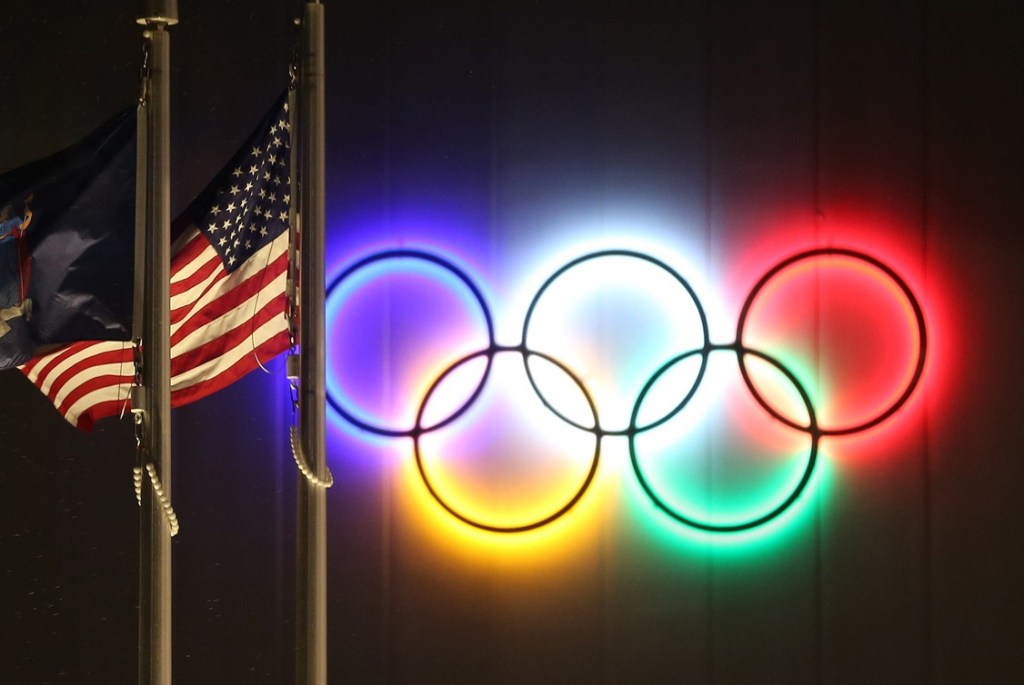 | The change impacts governing bodies, which extend beyond Olympic competition. |
|
|
Do you think Jannik Sinner's punishment was too light?
|
|
Wednesday’s result: 64% of respondents think MLS should switch to a fall-to-spring schedule like most top leagues.
|
|
|


